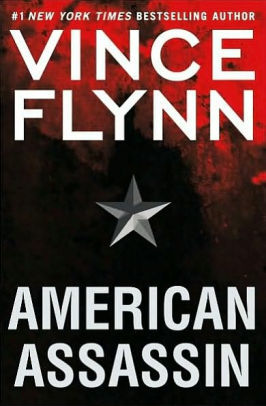
American Assassin
Chapter 49
by Flynn, VinceThis chapter, ‘Chapter 49’, is rich in content and well worth a careful read.
FAQs
1. How does Rapp use psychological tactics to extract information from Dorfman, and what does this reveal about their respective characters?
Answer:
Rapp employs brutal psychological manipulation by threatening to harm Dorfman’s poodle, forcing the banker to open his safe. This tactic reveals Rapp’s willingness to cross moral boundaries for mission success, though his hesitation (“Rapp wasn’t sure he had the stomach for this”) hints at lingering humanity. Dorfman’s prioritization of his dog over his own safety or wife (“You care more about that damn dog than you do your wife”) exposes his warped values and vulnerability, contrasting with his otherwise cold, Nazi-affiliated persona. The scene underscores the theme of moral ambiguity in counterterrorism operations.2. Analyze Hurley’s role in the interrogation and how his actions reflect the broader ethics of their mission.
Answer:
Hurley serves as both a foil and enabler to Rapp. While he initially seems reluctant about harming the dog (“his dark eyes… pleading with him to stop”), he later coldly executes Dorfman, declaring, “I’m only doing my job.” This duality mirrors the chapter’s exploration of utilitarian ethics—ends justifying means. Hurley’s focus on retrieving terrorist financial data (“Jackpot!”) validates the violence as necessary for larger security goals. His reference to Dorfman as a “Nazi prick” also frames the killing as ideological retribution, blending personal judgment with professional duty.3. Compare Ivanov’s worldview in the Moscow section to the themes of corruption introduced in the Dorfman interrogation.
Answer:
Ivanov’s monologue about post-Soviet Russia (“Both [systems] were corrupt to the core”) parallels Dorfman’s complicity with terrorists—both highlight institutionalized moral decay. Ivanov rationalizes his corruption (“far more deserving of the profits”) much like Dorfman claims to be “just a businessman,” revealing how power structures enable exploitation. The Godfather analogy connects both scenes: Ivanov embraces mafia-like coercion (“make him an offer he couldn’t refuse”), while Dorfman’s murder mirrors gangster-style justice. Both segments critique systems where profit and power override ethics.4. What symbolic significance does Dorfman’s SS dagger hold, and how does it deepen the chapter’s conflict?
Answer:
The SS dagger (and insignia) physically embodies Dorfman’s Nazi ties, making him a morally unambiguous target for Rapp and Hurley. This artifact transforms him from a mere banker into a historical villain, justifying their brutality. The revelation also ironizes his poodle-loving persona, contrasting effete luxury with violent ideology. By linking modern terrorism to fascism (“A poodle-loving Nazi who helps terrorists”), the chapter frames counterterrorism as a continuation of antifascist struggle, adding moral complexity to Rapp’s otherwise questionable methods.5. Evaluate how the chapter portrays the tension between professionalism and personal morality in intelligence work.
Answer:
The chapter juxtaposes Rapp’s visceral discomfort (“wasn’t sure he had the stomach”) with Hurley’s detached efficiency (“squeezed the trigger”), illustrating the psychological toll of covert ops. Ivanov’s cynical pragmatism (“10 percent ownership stake was non-negotiable”) further explores this theme, showing how institutions normalize corruption. Rapp’s muttered disbelief at Dorfman’s priorities hints at his unresolved moral conflict, while Hurley’s focus on results (“We need to be in Zurich by sunrise”) represents the operational imperative. Together, these dynamics question whether morality can coexist with national security objectives.
Quotes
1. ““Left eye or right eye? You choose.””
This chilling threat from Rapp to Dorfman’s dog encapsulates the brutal interrogation tactics used in the scene, revealing how far operatives will go to extract information. The quote highlights the psychological manipulation at play.
2. ““You care more about that damn dog than you do your wife… don’t you?””
Rapp’s observation underscores the banker’s twisted priorities and moral bankruptcy, serving as a commentary on how even criminals have their own warped sense of loyalty and affection.
3. ““That’s what Russia was all about in the wake of the collapse of the Soviet Union… Both were corrupt to the core, and both systems served to line the pockets of the powerful.””
This analysis of post-Soviet Russia provides crucial political context, comparing communist corruption to the new capitalist oligarchy. It reveals the novel’s thematic exploration of power structures.
4. ““It was The Godfather, the Wild West, and 1920s gangster America all rolled into one.””
Ivanov’s vivid description of modern Russia’s business environment powerfully conveys the lawless, opportunistic nature of the post-Soviet economy through cultural references.
5. ““Someone needed to keep track of all these foreign investors and make sure they weren’t stealing the Motherland’s natural resources.””
Ivanov’s self-justification for corruption demonstrates how officials rationalize their criminal behavior as patriotism, revealing the hypocrisy of the new Russian elite.
